[ad_1]
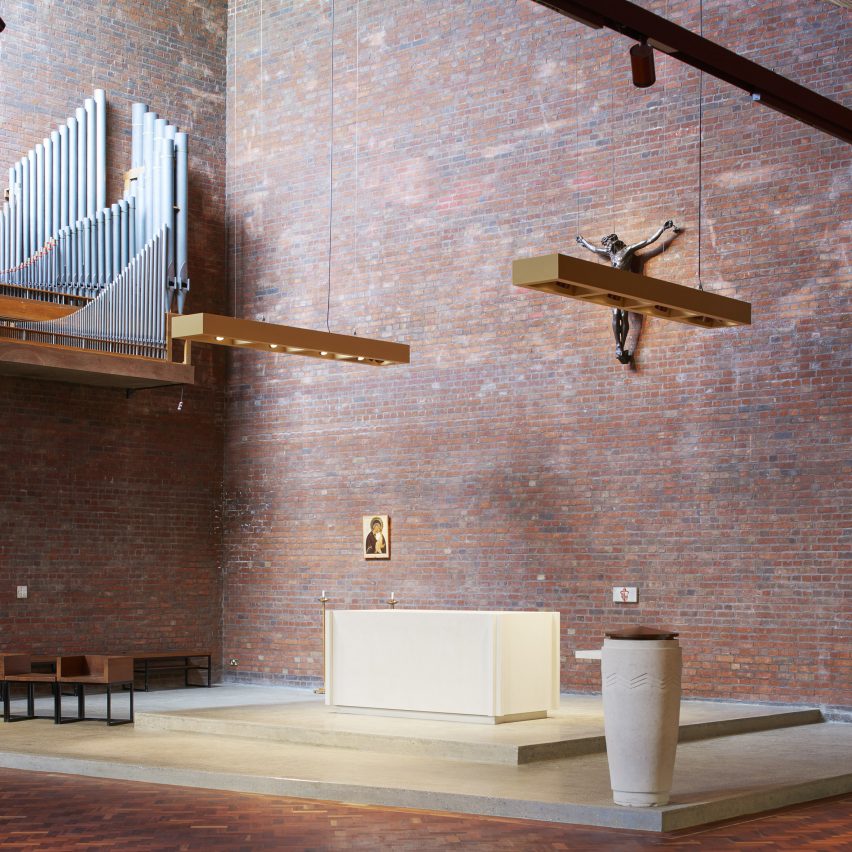
British designer Max Lamb has turned his hand to ecclesiastical objects, creating an altar, candles and floor for a church in London.
Lamb produced the pieces for the St John Chrysostom Parish Church in Peckham, south London, which was designed in a modernist style by the architect David Bush and built in 1966.
Commissioned as part of an upgrade to the whole church, Lamb’s designs include a monolithic Portland limestone altar and a repaired sanctuary floor made of materials that reflect the building’s history.
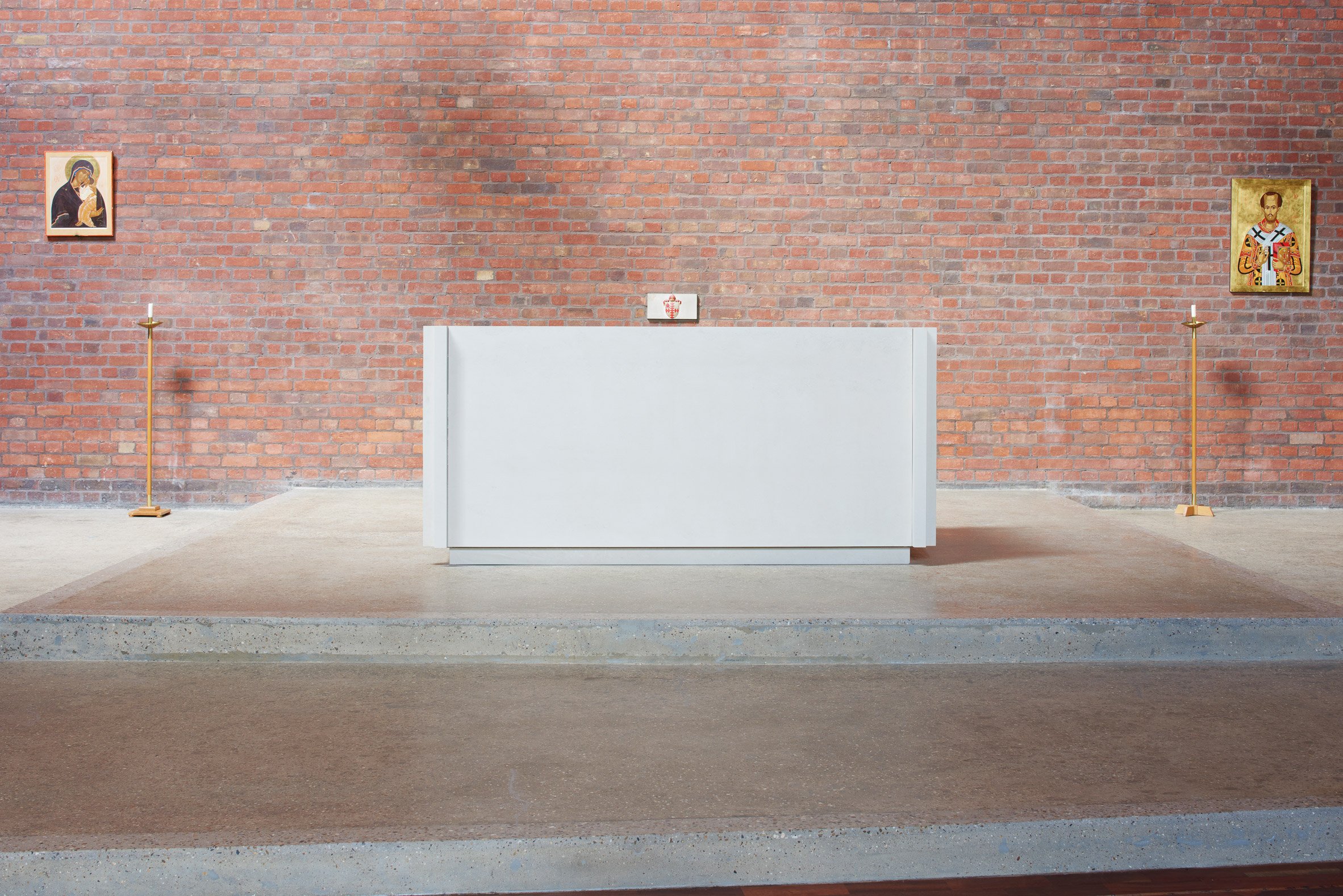
“The 1966 church interior has a minimalist design approach,” said Lamb. “I sought to delicately reconcile the space and the existing elements with my new additions, while still retaining the character of this powerful space.”
Lamb took inspiration from the Anglican church’s material palette of brick, concrete, painted steel, block flooring and iroko hardwood seating for his designs.
He also looked to the earlier buildings on the site, the parishes of St Chrysostom and St Jude, which had been bombed during the second world war and then demolished and amalgamated.
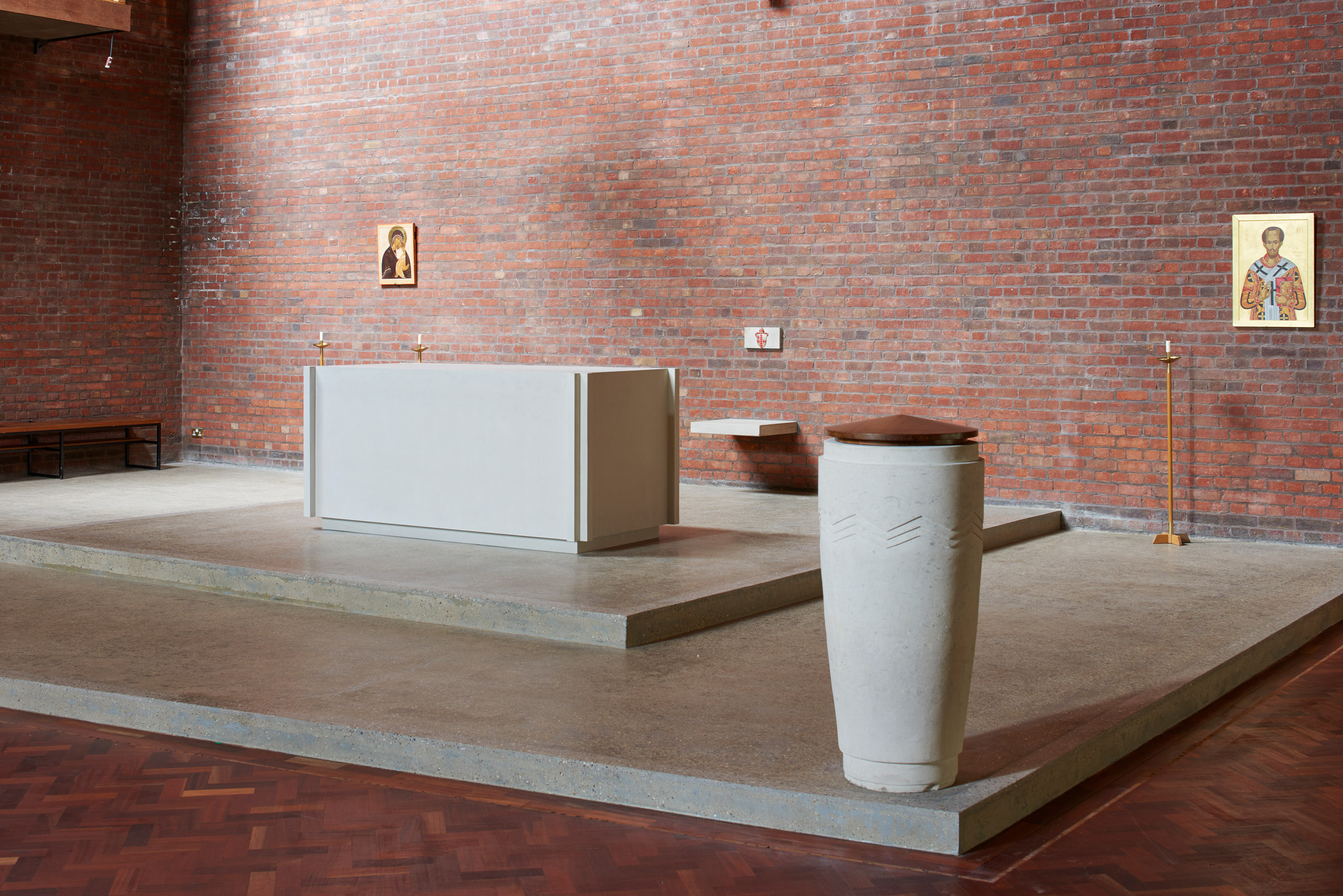
The Portland stone font in the current church is carved from one of those buildings’ columns, creating what Lamb describes as a symbolically important direct link with its history.
Lamb made his minimalist altar of the same kind of stone, working closely with supplier and manufacturer Portland Stone Firms to select a batch with a similar luminosity and texture as that already in the church.
For the restoration of the sanctuary floor, which had been obscured over the decades, he stripped the area back to its concrete core and repaired it using a concrete and aggregate mix that was closely matched to the original materials.
“Much like the altar, the floor treatment carefully echoes materials used in the construction of the original building, notably the coloured glass and concrete windows designed by Susan Johnson and a large concrete base for the organ pipes’ sculptural wall platform,” said Lamb.
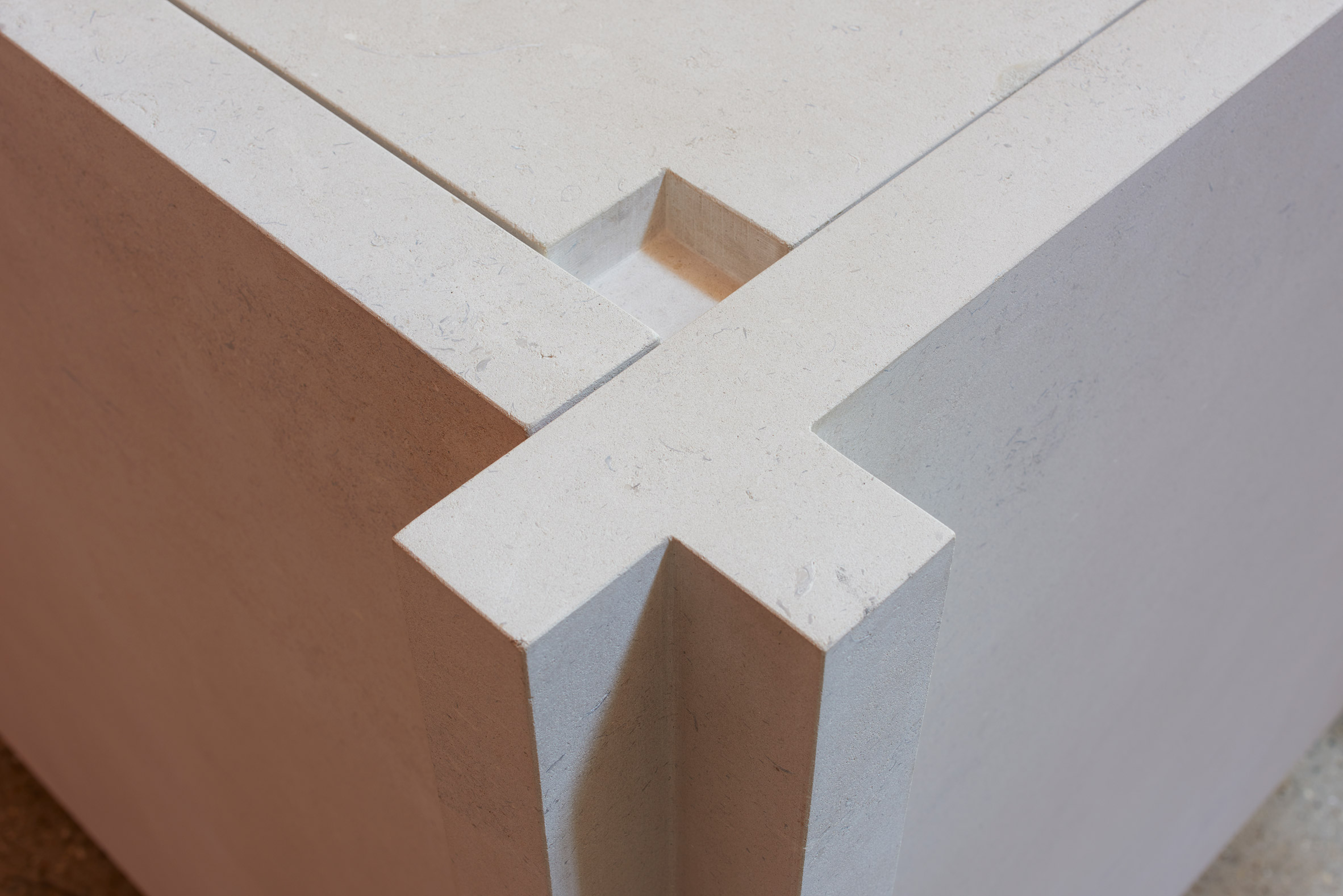
Lamb’s final contributions to the church are a Paschal candle (a large white candle used in liturgies) and a pair of altar candle holders made of Portland stone and reclaimed teak to blend in with the church’s furniture.
The St John’s commission is Lamb’s first church-based project in the UK, and came about after the church held a competition asking for responses to the space focused on the altar and floor.
A commissioning panel including the church’s then parish priest Peter Packer, as well as curator and producer Aldo Rinaldi, unanimously selected the designer’s concept.
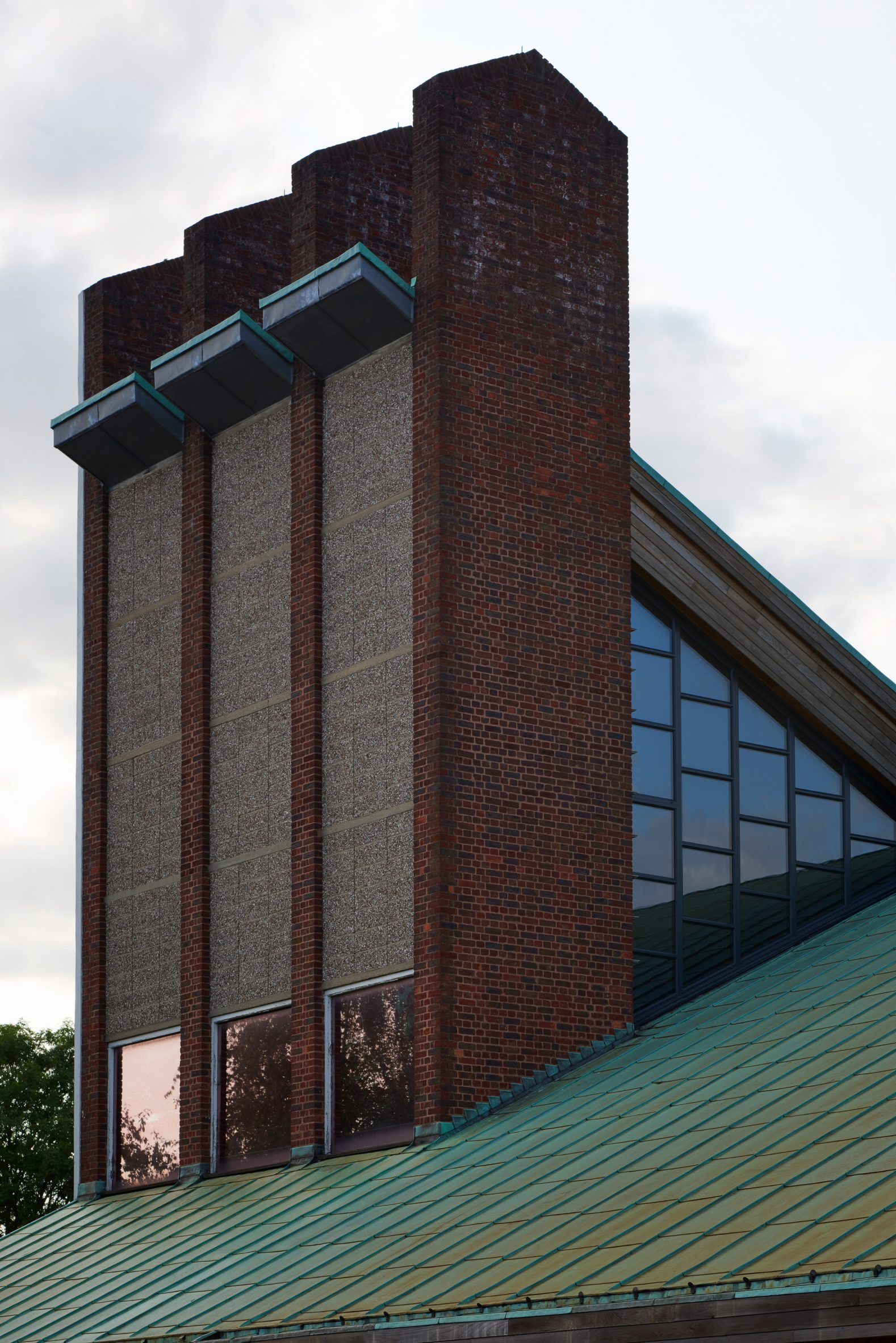
Lamb, who lives and works in London, often involves hands-on processes such as cutting, carving and sand casting in his design.
His recent projects include the durational performance 60 Chairs, for which Lamb cut 60 chairs out of polystyrene in three days, and a 3D tile installation created with Tajimi Custom Tiles.
Photography is by James Harris.
The post Max Lamb crafts minimalist altar for St John Chrysostom Church appeared first on Dezeen.
[ad_2]
www.dezeen.com










